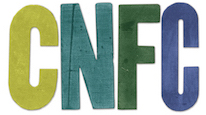2018 winner: “Descent into Darkness,” by Nancy O’Rourke
Machetes. The weapons of choice. Crude weapons, many of them with blades stained dark by the blood of victims. Machetes used viciously in the streets, in markets, schools, and churches. Machetes used to maim and slaughter men, women and children. Machetes used by farmers, shop owners, teachers, and priests. Machetes used to kill strangers, neighbours and sometimes family members.
*
I’d only been reunited with the children of Kimihurura for two weeks. Back in Rwanda on a United Nations contract, I was recognized one day by a man on the street. A man who remembered me from 18 years earlier as the white woman, the Muzungu, who played with children. Back then, I spent several months in the country visiting my then partner, who worked on a contract with the Rwanda Development Bank. With a love of children, but without any of my own, I was happy to join in with a group of neighbourhood kids, playing soccer in the afternoons, with a ball made up of wound-up plastic garbage bags. Those kids were something else. They strung up little lights around my heart.
2017 winner: “A Chaotic Jumble of Infinite Possibility,” by Joshua Levy
The bathroom was covered with graffiti.
For example:
The only things worth fighting for in this world are LOVE & FRIENDSHIP was written above the toilet. Immediately underneath: Wrong. You should never need to fight for love. And below, a third comment – this one in red: YOU are the fucking wrong one here, buddy. Love is a battlefield.
I washed my hands and checked my beard for signs of grey.
Outside, Toronto was only half awake. Fashionably dressed mannequins judged my plaid shirt and naturally faded blue jeans from behind glossy windows. In his car seat, a toddler pointed a gun at my head while we both patiently waited for the traffic lights to change colour.
2016 winner: “Spectrum,” by Nicole Breit
RED
The wild strawberry flush across my chest, her cheeks. An illicit kiss in her basement suite.
Five years in, we start counting: two eggs bled away casually every month.
Then, six months of flirting, negotiations. Two hopeful women. A captivated man.
Cosmopolitans. Our red leather couch under mistletoe and holly berries. Jazzberry cartoon hearts radiate around all of us.
“Please don’t break our hearts,” I say.
“I won’t.” His scarlet cape promise. The last time we see him.
A year and a half later the rouged Costco employee, white hair rolled into a hairnet, hands out samples. Lights up, says “Such a beautiful baby!” and asks again, “But really, who’s the real mother?”
My girlfriend — the birth mother — looks down at her kid-size cup of tickle-me-pink sauce and says flatly, “This tastes terrible.”
2015 winner: “Nana Technology,” by Kirsten Fogg
A faded picture of me and my little brother pops up whenever I turn on my phone. Here, encased magically in modern technology that my brother never knew, is the past that we were. It’s his third birthday, we’re sitting on top of the picnic table in striped bathing suits. I’m holding a patterned punching ball in my lap and his arms are reaching out, as if towards the future, but I know what he really wants is the chocolate cake mum’s carrying towards us.
Even today, I stare at the smart phone in my hand and marvel at its ability to link the past with the present, to take bits and pieces of me, my body and my voice, tear them apart, send them hurtling through the air and reconstruct them all on the other side of the world. In Skype milliseconds, I jump from Australia to Canada, from midnight to Manitoba morning, from today to yesterday, from my home office to Nana’s funeral. If only I could reconstruct my brother in the same way.
2014 winner: “On Good Days,” by B.A. Markus
On good days I’m Gertrude Stein
On bad days I’m Mordecai Richler.
On good days it is the same sun that shone on Gertrude Stein that shines on me. On good days I fling open my shutters and shout, “Quelle belle journée!” and with my basket on my arm I wander as Alice B. Toklas did, from shop to shop in a delightful quartier.
In my delightful quartier I buy 200 grams of goat cheese from les Îles de la Madeleine. Artisanal cheese made from raw milk. Milk from goats who eat the grass that grows on the slopes of those northeastern shores. Grass cured by the Atlantic’s salty breezes. Cheese that tastes of the sea. This is what goes into my basket. On good days I hesitate between not one, not two, but four crusty white baguettes, all baked locally and according to the highest culinary standards. Just like on la rive gauche. Le pain, le pain, surtout le pain.
